Peugeot Partner vs VW T-Cross – Which car suits you better?
Both models have their strengths – but which one suits you more?
Compare performance, efficiency, price and space directly: Peugeot Partner or VW T-Cross?
Costs and Efficiency: Price and efficiency are often the first things buyers look at. Here it becomes clear which model has the long-term edge – whether at the pump, the plug, or in purchase price.
VW T-Cross has a hardly perceptible advantage in terms of price – it starts at 21100 £, while the Peugeot Partner costs 22400 £. That’s a price difference of around 1312 £.
Fuel consumption also shows a difference: Peugeot Partner manages with 5.20 L and is therefore minimal more efficient than the VW T-Cross with 5.40 L. The difference is about 0.20 L per 100 km.
Engine and Performance: Power, torque and acceleration are the classic benchmarks for car enthusiasts – and here, some clear differences start to show.
When it comes to engine power, the VW T-Cross has a barely noticeable edge – offering 150 HP compared to 136 HP. That’s roughly 14 HP more horsepower.
In acceleration from 0 to 100 km/h, the VW T-Cross is clearly perceptible quicker – completing the sprint in 8.40 s, while the Peugeot Partner takes 11.20 s. That’s about 2.80 s faster.
In terms of top speed, the VW T-Cross performs barely noticeable better – reaching 200 km/h, while the Peugeot Partner tops out at 183 km/h. The difference is around 17 km/h.
There’s also a difference in torque: Peugeot Partner pulls a bit stronger with 300 Nm compared to 250 Nm. That’s about 50 Nm difference.
Space and Everyday Use: Beyond pure performance, interior space and usability matter most in daily life. This is where you see which car is more practical and versatile.
Both vehicles offer seating for 5 people.
In curb weight, VW T-Cross is slight lighter – 1267 kg compared to 1329 kg. The difference is around 62 kg.
In terms of boot space, the Peugeot Partner offers convincingly more room – 1800 L compared to 455 L. That’s a difference of about 1345 L.
In maximum load capacity, the Peugeot Partner performs convincingly better – up to 4000 L, which is about 2719 L more than the VW T-Cross.
When it comes to payload, Peugeot Partner clearly takes the win – 991 kg compared to 480 kg. That’s a difference of about 511 kg.
Who comes out on top?
Overall, the Peugeot Partner shows itself to be wins the duel decisively and secures the title of DriveDuel Champion.
It convinces with the more balanced overall package and proves to be the more versatile choice for everyday use.
Peugeot Partner
Peugeot Partner
The Peugeot Partner is a versatile and practical vehicle, ideal for both urban and rural settings. Its spacious interior and adaptable seating make it a popular choice for families and businesses alike. With a focus on reliability and efficiency, the Partner is well-suited to meet the demands of everyday transport.
detailsVW T-Cross
The VW T-Cross stands out as a versatile compact SUV that combines practicality with style. Its interior design offers a spacious and flexible layout, ideal for both city driving and weekend adventures. With its modern infotainment system, the T-Cross ensures drivers and passengers stay connected throughout their journeys.
details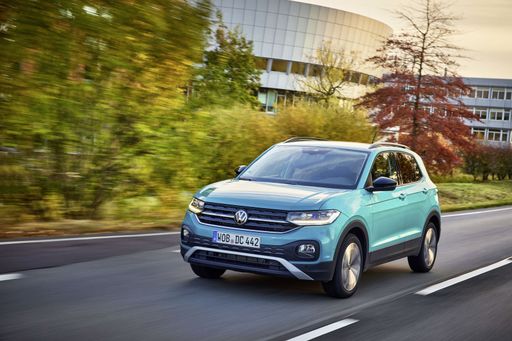 @ Volkswagen
@ Volkswagen
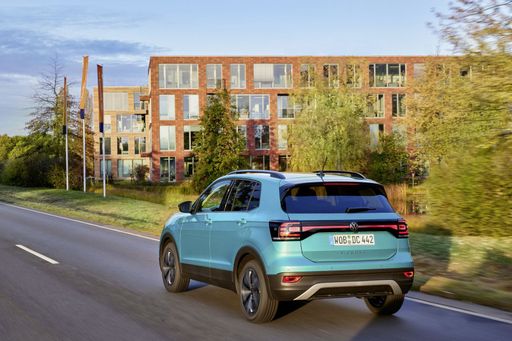 @ Volkswagen
@ Volkswagen
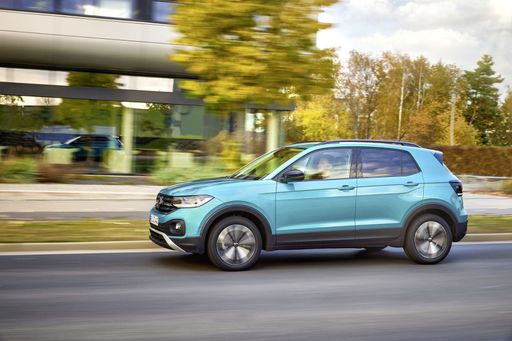 @ Volkswagen
@ Volkswagen
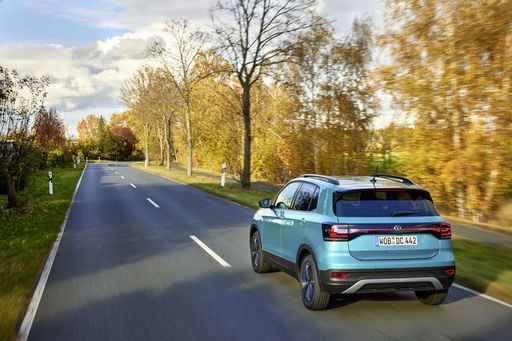 @ Volkswagen
@ Volkswagen
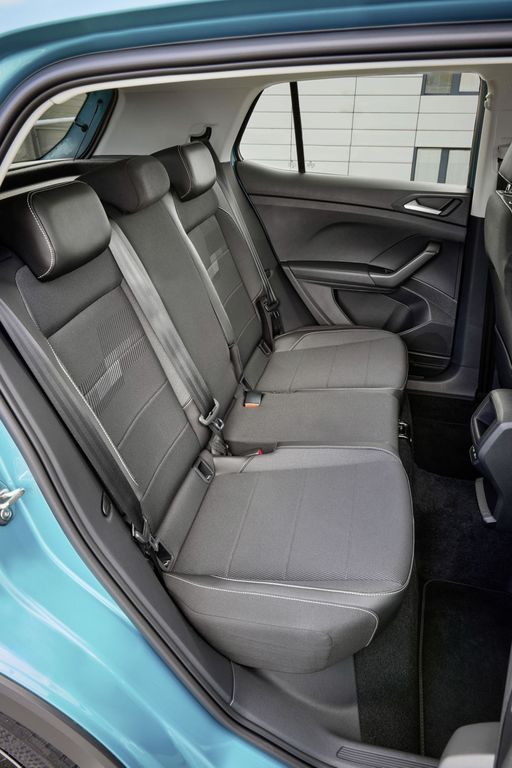 @ Volkswagen
@ Volkswagen
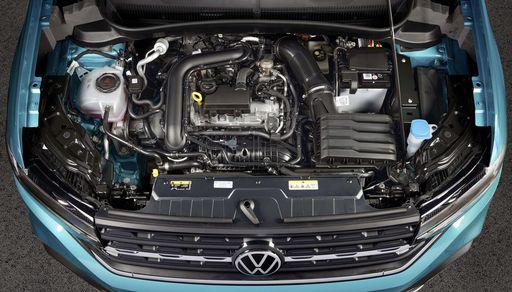 @ Volkswagen
@ Volkswagen

|
|
|
|
|
Costs and Consumption |
|
|---|---|
|
Price
22400 - 33800 £
|
Price
21100 - 31500 £
|
|
Consumption L/100km
5.2 - 6.3 L
|
Consumption L/100km
5.4 - 6 L
|
|
Consumption kWh/100km
17.40 kWh
|
Consumption kWh/100km
-
|
|
Electric Range
354 km
|
Electric Range
-
|
|
Battery Capacity
-
|
Battery Capacity
-
|
|
co2
0 - 143 g/km
|
co2
124 - 136 g/km
|
|
Fuel tank capacity
53 - 61 L
|
Fuel tank capacity
40 L
|
Dimensions and Body |
|
|---|---|
|
Body Type
Cargo Van
|
Body Type
SUV
|
|
Seats
2 - 5
|
Seats
5
|
|
Doors
4 - 5
|
Doors
5
|
|
Curb weight
1329 - 1813 kg
|
Curb weight
1267 - 1338 kg
|
|
Trunk capacity
1800 L
|
Trunk capacity
455 L
|
|
Length
4403 - 4753 mm
|
Length
4127 mm
|
|
Width
1848 mm
|
Width
1784 mm
|
|
Height
1796 - 1812 mm
|
Height
1573 mm
|
|
Max trunk capacity
3300 - 4000 L
|
Max trunk capacity
1281 L
|
|
Payload
611 - 991 kg
|
Payload
463 - 480 kg
|
Engine and Performance |
|
|---|---|
|
Engine Type
Electric, Diesel, Petrol
|
Engine Type
Petrol
|
|
Transmission
Automatic, Manuel
|
Transmission
Manuel, Automatic
|
|
Transmission Detail
Reduction Gearbox, Manual Gearbox, Automatic Gearbox
|
Transmission Detail
Manual Gearbox, Dual-Clutch Automatic
|
|
Drive Type
Front-Wheel Drive
|
Drive Type
Front-Wheel Drive
|
|
Power HP
102 - 136 HP
|
Power HP
95 - 150 HP
|
|
Acceleration 0-100km/h
11.20 s
|
Acceleration 0-100km/h
8.4 - 11.3 s
|
|
Max Speed
135 - 183 km/h
|
Max Speed
180 - 200 km/h
|
|
Torque
205 - 300 Nm
|
Torque
175 - 250 Nm
|
|
Number of Cylinders
3 - 4
|
Number of Cylinders
3 - 4
|
|
Power kW
75 - 100 kW
|
Power kW
70 - 110 kW
|
|
Engine capacity
1199 - 1499 cm3
|
Engine capacity
999 - 1498 cm3
|
General |
|
|---|---|
|
Model Year
2024 - 2025
|
Model Year
2024 - 2025
|
|
CO2 Efficiency Class
A, E
|
CO2 Efficiency Class
D, E
|
|
Brand
Peugeot
|
Brand
VW
|
Is the Peugeot Partner offered with different drivetrains?
Available configurations include Front-Wheel Drive.
The prices and data displayed are estimates based on German list prices and may vary by country. This information is not legally binding.
